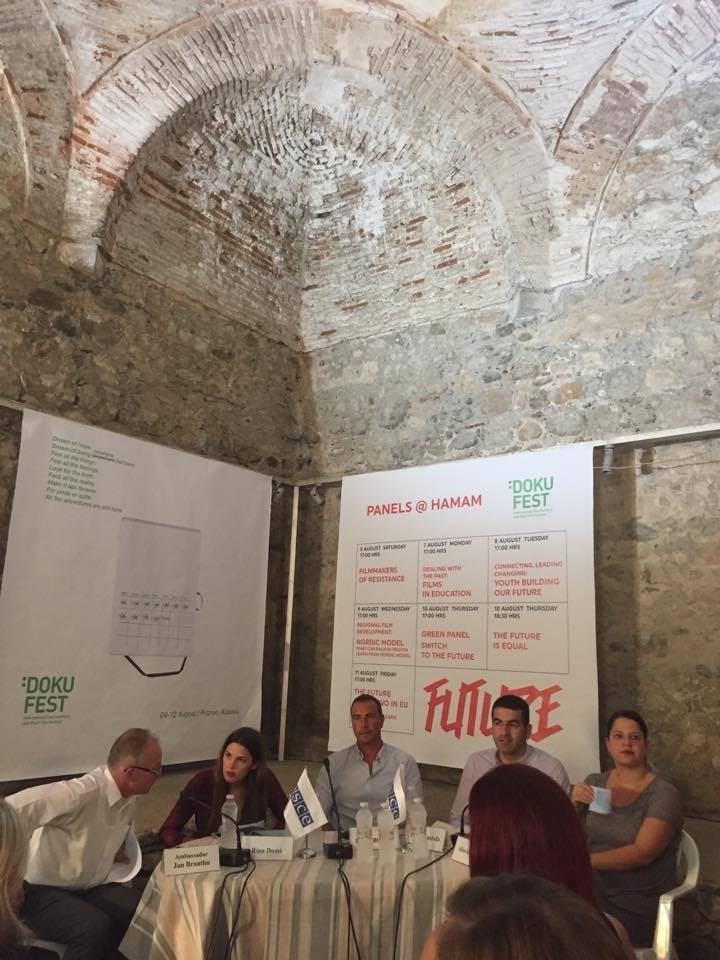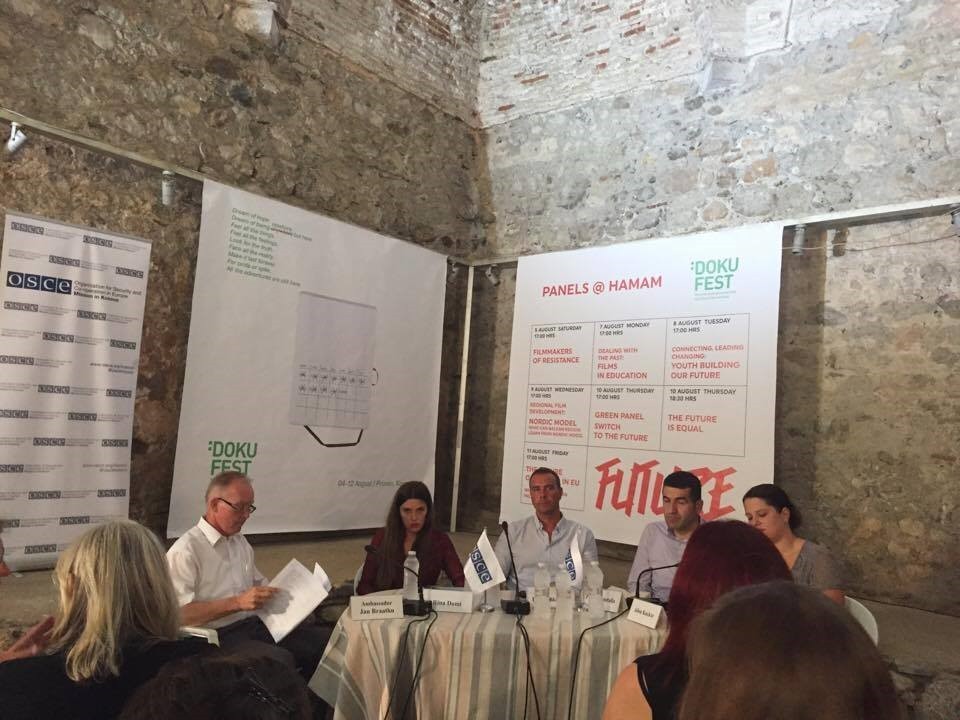From the panel: Connecting, Leading, Changing: Youth Building Our Future- organized at Dokufest 2017
“Break out of the bubble!” Jan Braathu the head of the OSCE mission in Kosovo, urges. Western Balkans’ youth seems to be stuck in their immediate surroundings, culture, and mentality. Youth of the Balkans must break through prejudices of the past in order to move forward by joint projects, workshops, regional exchange programs, and simply by socially interacting. This panel was aiming at pressing three vital SDG goals, gender equality, reduced inequalities, and quality education. The panel included the secretary general of RYCO, Djuro Blanusa, the deputy secretary general of RYCO, Fatos Mustafa, member of the municipal assembly in Zrenjanin, Alisa Kockar, and the member of the municipality assembly in Gjakove/Djakovica, Rina Domi, moderated by Jan Braathu.
This year’s Dokufest theme is future, in which an emphasis is placed on youth to lead, build, and change for preferably the better but also for the worst. At this panel discussion the Regional Youth Cooperation Office the deputy and the secretary general explained the aim their organization wishes to accomplish in the region. “We should be equal in our diversity”, Blanusa advocates as in part to embrace and accept neighboring nation’s differences. RYCO works to reconcile and build cooperation amongst youth, but also ensure gender equality, diversity, and change mindsets of the Western Balkans. 
Women’s position in politics in the region was also tackled during the panel. Kockar explained how older generations tend to hold key positions in politics and other areas of governing, which indicates how other entities of society like youth and women get excluded from such opportunities. She believes that the youth is subordinate to the elderly and their input could be rewarding in the long run. She took Gjakova as an example of a society that supports youth integration in social life.
The member of the municipality assembly in Gjakova, Rina Domi, further added to the discussion by talking about the importance of youth’s education and the value of workshops. In addition, she points out the institutional tendency to exclude youth in governance and higher positions, however, she is more optimistic prior to the last mandate, which shows progress in youth involvement.
The panel members, in general feel positive towards the future youth involvement. They believe their inclusive visions and reconciliation to progress and that the future is not as gray as it seems. They strongly believe, however, that in order to achieve that, all of the institutions need to work coherently.
Lana Pedisic, Vesa Osmani
UN Interns
 Search
Search


